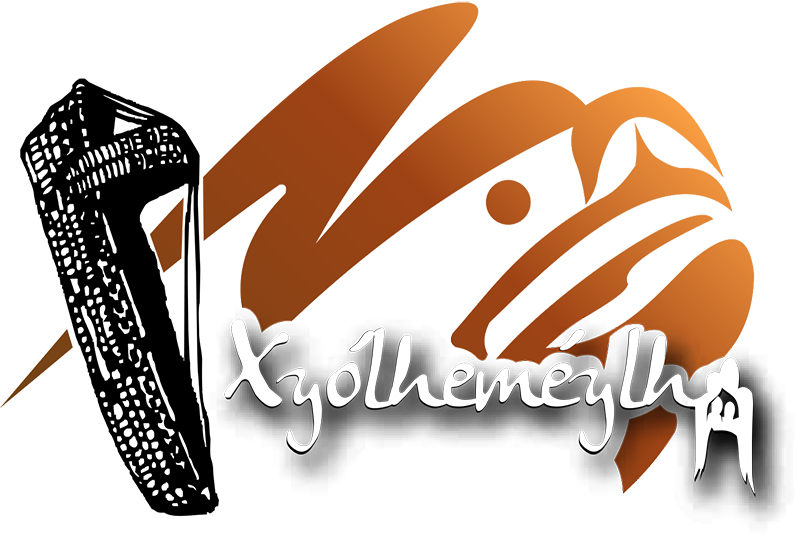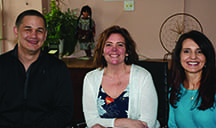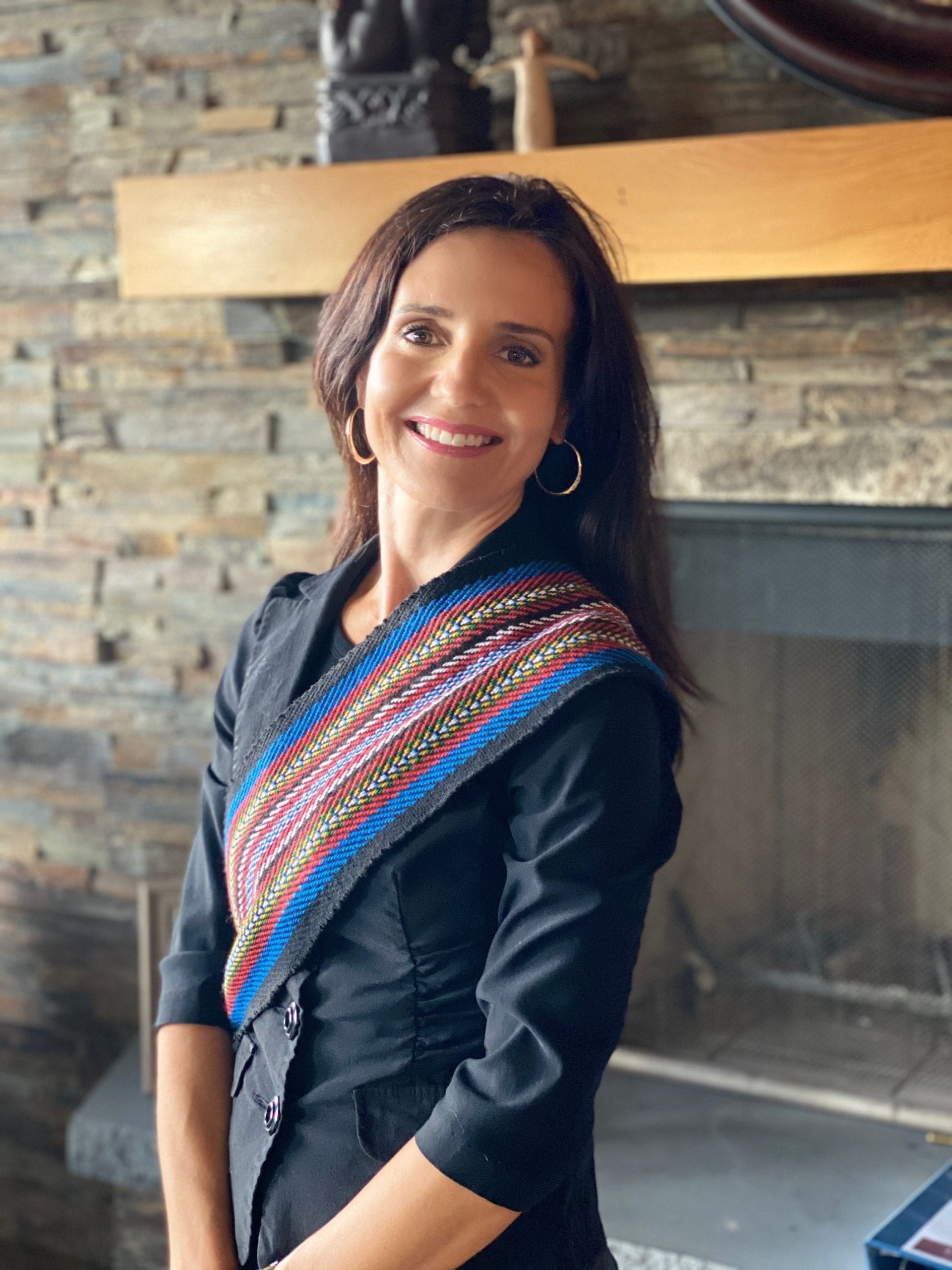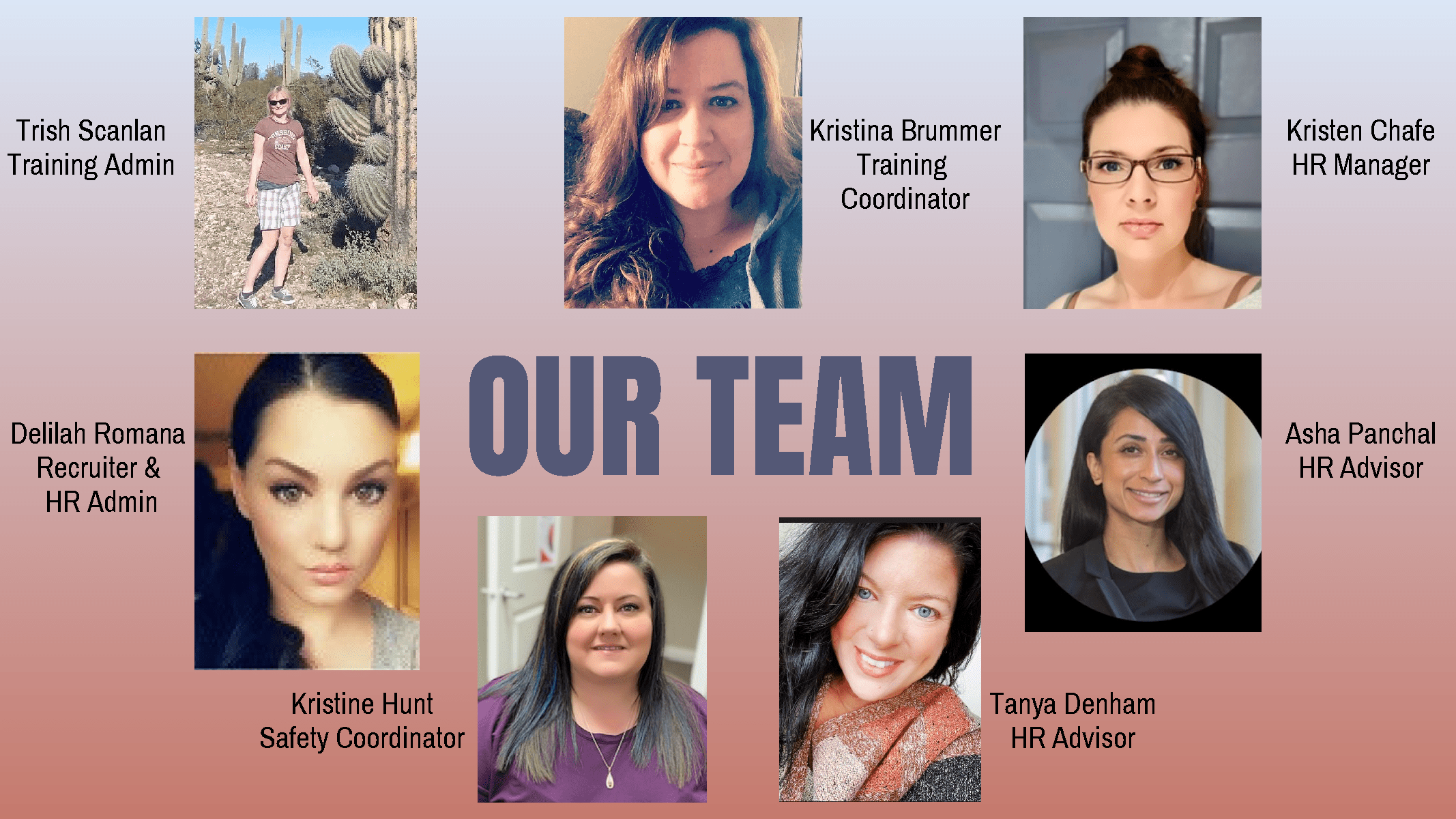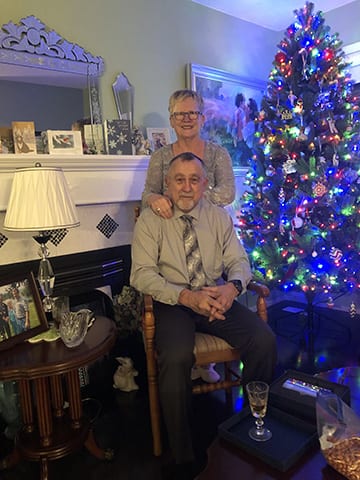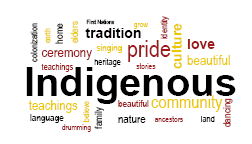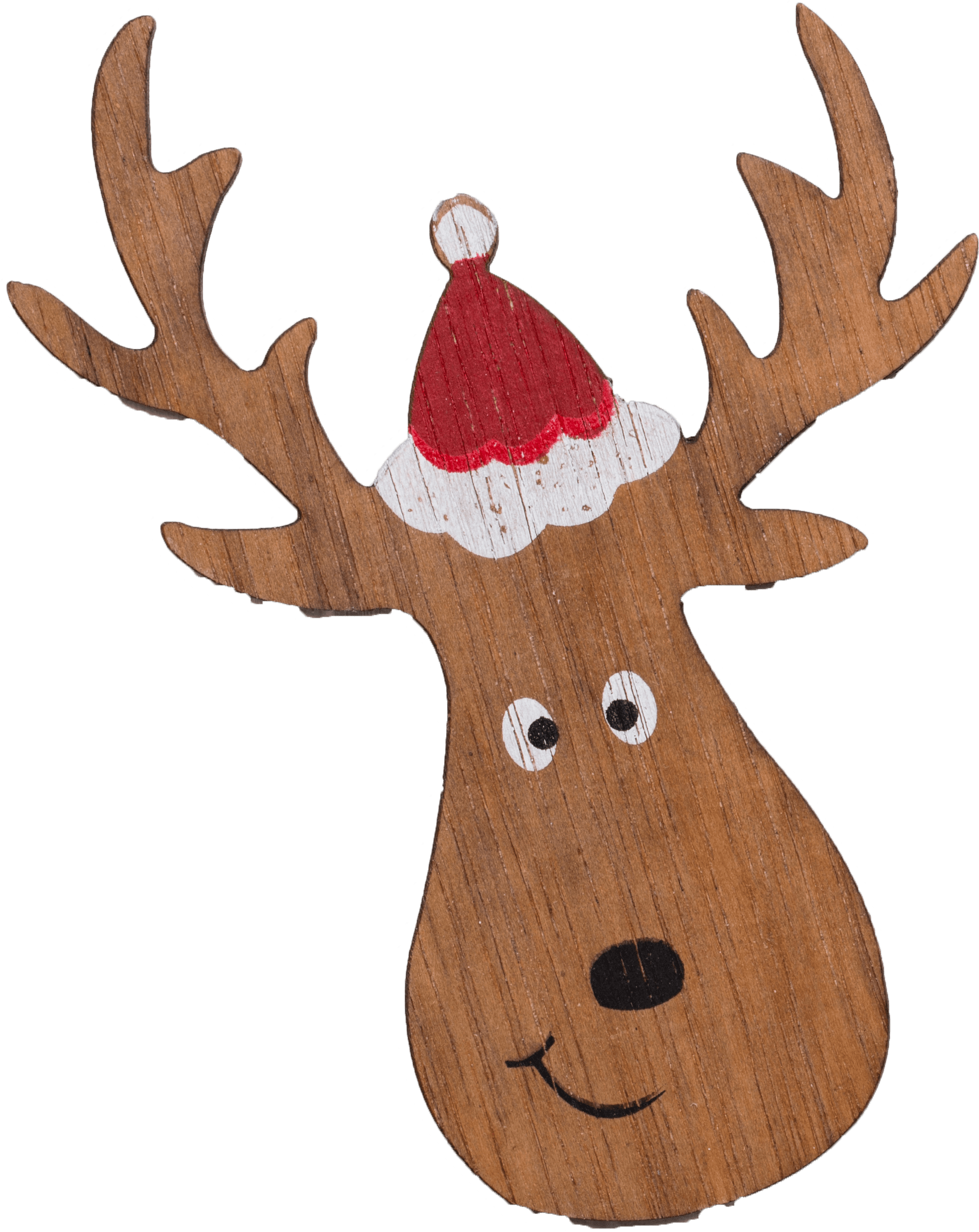Message from the Board of Directors
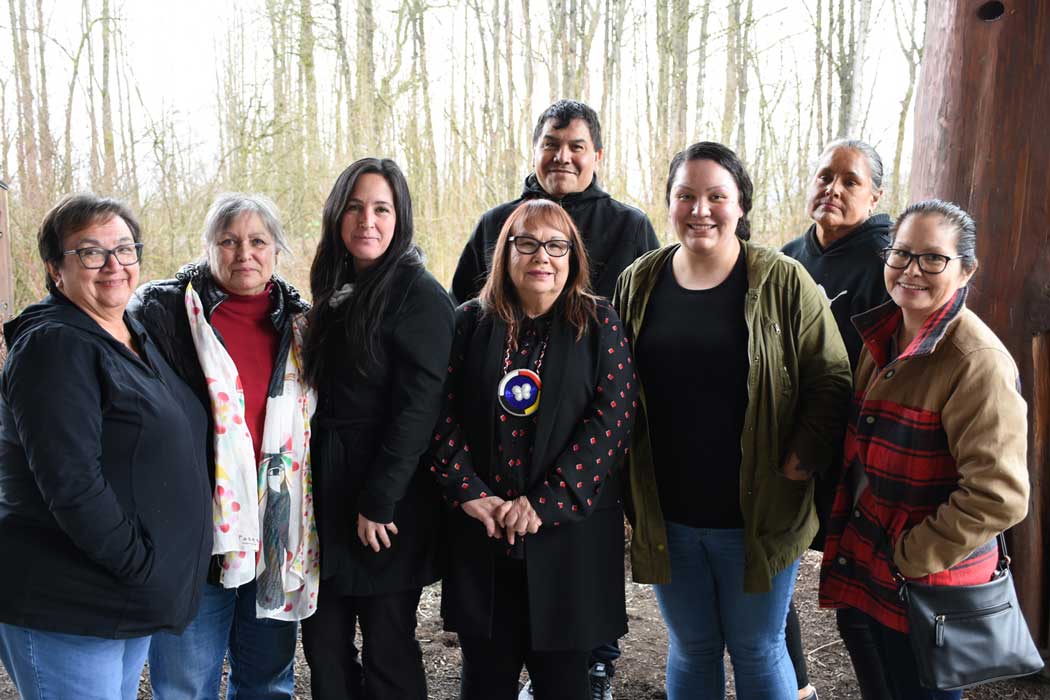
From left to right: Helen Joe, Marion Mussell, Wenona Hall, Glenda Campbell, Peter John, Jennifer Janik, Judy Douglas, Paula Olmstead. Missing: Tammy Bartz.
The Spirit of Community and Self Care
Welcome to our winter newsletter! The theme of the newsletter is about Community and the spirit of inner reflection and Self Care.
Our “Community” is made up of the many partners who make a difference to the lives of the children, youth and families our agency is blessed to serve. We have profiled some amazing partners in this newsletter edition including the Community profile of Sumas First Nation, the dedication of our community of support parents, and the wisdom of our Elders. We also profiled our Visions and Voices youth group with a focus on the innovative and creative way they came together to support each other virtually!
As our agency has had to rethink the way we deliver some of our services, it is incredibly important to be reminded that we are not alone, and support is available. Our Elder advisory members are an integral part of how we as an organization are continuing to move forward in a good way. Our “knowledge keepers” have been an amazing support to our staff and families throughout this year offering healing circles, one on one support, and team support. The Elders teach us that for us to do the very best to serve others, that it starts with each of us reflecting inwardly and taking care of ourselves. They teach about the importance of taking time to pause and reflect, about the importance of understanding and using our gifts of kindness, sharing, loving, that are within each of us. These gifts are useful, even necessary, to those who are called to the service in helping others.
This will certainly be a different holiday season than any other year. While we will miss gathering in large family units, and miss gathering as a community to celebrate, and miss participating in the Longhouse seasonal traditions, we know that safety and health of our communities is paramount. As communities of families, we can take solace in knowing this is temporary. We can use this year as having that extra window of opportunity to strengthen our very immediate family unit, our household family unit, through celebrating, resting, and being creative living in the moment in smaller groups. We are still together.
On behalf of the Xyólheméylh Board of Directors, we would like to say thank you for being part of our “Community” and wish you a peaceful and restful holiday season. May the Creator and spirit of your ancestors be with you and your family today and throughout the coming year.
All My Relations,
Marion Mussell
President, Board of Directors
We would like to take this opportunity to thank our community of caregiver support parents, Elders Advisory Council, Visions and Voices Youth, Board, and all our amazing staff who make up our Xyólheméylh work family for their tireless dedication, commitment and passion to do the very best in the roles they fulfil for our agency. Our Elders teach us that for us to live our passion of serving others it starts with feeding our mind, body and spirit with good thoughts, nourishment and love as we take care of ourselves. We would like to thank our Board of Directors and leadership for instilling their trust and belief in us to lead the agency in a good way.
We recognize this has been a tough year for many. Despite the covid challenges what we have seen is people working with open hearts and open minds upholding our agency mission and values. It has been so inspiring to watch. We have moved forward with many initiatives in our agency strategic plan and look forward to this momentum continuing.
We had our first ever virtual staff Christmas party with 139 staff in attendance! While the virtual party was happening some of our dedicated staff were out delivering hampers to youth. We had a group of staff who worked with our event planner to pack over 100 hampers and deliver them to youth and families. Thank you to all who made financial and time contributions to making this a huge success. We have an Indigenous cookie making contest for children and youth to do over the holidays and look forward to seeing photos of the creations.
We also want to extend our appreciation to all our stakeholder and community partners as we could not do our work without you. A special thank you to Grand Chief Doug Kelly who recently finished his terms as President of Stó:lō Tribal Council and Chief David Jimmie President of Stó:lō Nation Chiefs Council for their ongoing support to our agency. It is the relationships we all have and the many threads that stitch all of us together, as we work to serve others in a good way.
As we say goodbye to 2020, we pray for hope for a brighter day, and better tomorrow for all of us. We hold our hands up to each of you and wish you a year ahead full of peace, love, harmony and lots of laughter!
Rod Spitzig, Kyla Darby and Penny Trites
Update from Penny Trites, Executive Director of Staff & Community Relations
“Community Care”
Since joining the Xyólheméylh work family 10 months ago, I have seen ups and downs and many incredible blessings occur. The acts of compassion and kindness on behalf of one another has been inspiring to watch. This kindness has spread to me in my role with leaders sharing their knowledge, wisdom, and teachings with me which I hold near and dear to my heart. They have taught me that the creator puts us where we are meant to be, and the experiences that are in front of us. It is my responsibility to respond in a good way with my heart, mind and spirit. As an agency we recognize the challenging year we have all had. Our dedicated staff have worked tirelessly to ensure the children, youth and families our agency serves has everything they need over the holiday season.
A group of us worked on a Saturday afternoon to get youth hampers assembled. As I was driving home, I said a prayer of thanks for the love and support my family received in the little village in Saskatchewan we called home. During the Christmas holiday season my family received a hamper every year. The hamper and turkey were delivered by community members singing Christmas carols. I remember the look on my parents faces and how appreciative and thankful they were. We were very poor, and without the hamper every year we would not have had Christmas dinner. As a young girl watching our community take care of us taught me the gift of giving, how helping others is so important, and the value of community.
Our Elders teach us that the winter season gives us time to deepen our spiritual connection to the creator. It is a time to rest, calm our minds and focus on inner reflection. Elder Arnold Ritchie was speaking about self love and said, “each of us needs to be able to look at ourselves in the mirror and think we are the greatest person that we know. No one knows you like you know yourself.” He also said, “every single one of us are worth smiling at.”
My holiday prayer is that the creator gives each of us the gift of healing and that the kindness, hope and love within each of us shines like a beacon of light that fills each of us with inspiration, comfort and joy.
Love, Penny
christmas card contest
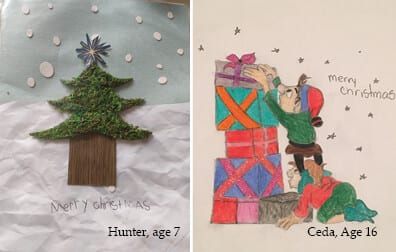
Xyólheméylh would like to thank all the children and youth who entered our Christmas card contest. A panel of our Board Members and Elders Advisory Council chose the winners in two categories. They commented on what a tough decision it was because there were so many wonderful entries. The entries were judged in two categories - ages four to 12 and ages 13 to 19. In the end the panel chose first place winners Hunter, age 7 and Ceda, age 16, as first place winners, and turned them into our Christmas cards this year. Thank you to all the children and youth for their beautiful Christmas art!
visions & voices: virtual forum

On December 4th and 5th, 2020, the Visions and Voices Youth Advisory Group at Xyólheméylh held its annual forum virtually with over 30 caregiver support parents, youth and staff participating. The purpose of the event every year is to bring youth and caregivers and staff together to discuss what is going well, and ways of how the agency can make changes to continue to move things forward in a better way.
This year the event featured Earl Lambert as a guest speaker and was facilitated by Xyólheméylh staff member Raven Little. Earl lives in Vancouver and is Cree and Métis, a successful motivational speaker, presenter and entrepreneur. He has many videos on Youtube and his energy is contagious.
Earl spoke to the youth separately on the Friday evening about his difficult childhood, which was spent in and out of foster care, and eventually ended up in juvenile detention for three years. He talked about the bullying and racism he experienced, as well as the legacy of the residential schools and his family’s pain which led to him being placed in care.
On Saturday morning Earl spoke to the caregiver support parents about what he learned from being a child in care, and the emotional needs of children that caregivers need to understand. For Earl one of the positives of being a child in care was being removed from an environment of “crazy making” and being safe. On Saturday afternoon, we brought the two groups together to hear Earl talk about the importance of rules and boundaries, respect, and communication.
The consistent message that Earl stressed is the importance of children and youth being connected to their culture. He was also empowering and motivational, urging the youth to use their voice, to break the cycle, and to be the change they wish to see. “Your voice matters, your feelings matter, your thoughts matter. You are important and valued,” Earl told the youth.
At all the sessions, youth and caregivers broke into discussion groups to give Xyólheméylh staff feedback on what is going well and current challenges. Support Parents felt the Agency was doing a better job of communicating with them and organizing virtual activities, such as contests, to keep children engaged.
Some of the things we heard that present challenges are changes in social workers, access to counselling for children and youth in care, support parents needing help with transportation to appointments, career guidance for youth. Caregiver support parents would like to see more webinars and workshops.
Thank you to the Visions and Voices youth for organizing the event, all the caregiver support parents, youth and staff who participated. Thank you to Raven for facilitating, and to Earl for sharing his personal story from the heart, his wisdom and humor!
Meet an Elder: Gil Poitras
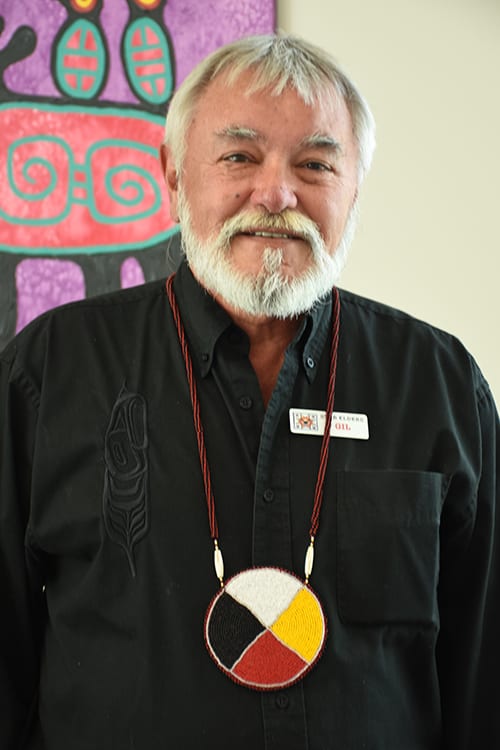
Gil Poitras is one of the newest Elders at Xyólheméylh and is the Métis Cree Representative. He is originally from Saskatchewan and has lived on Coast Salish territory since 1958. After retiring from various managerial positions in window manufacturing, Gil decided to go back to school and study to be a community support worker and resident care attendant. He then worked for several years helping people in extended care and helping youth with disabilities.
He has been a Star Elder with MCFD for the last eight years in Circle 5 as well as Métis Family Services, where he presides over ceremonies, healing and talking circles, working with youth as well as helping Indigenous people who find themselves in the court system. At Xyólheméylh Gil provides support, traditional wisdom and works with staff and clients to ensure Indigenous culture is embedded in the organization.
He finds meetings improve overall for children, youth and families when Elders are in attendance. Gil attributes this to Elders having a calming influence in meetings, particularly in settings where emotions are high.
Gil enjoys working with Indigenous people. “I get as much out of it as my clients,” says Gil. Once a year he leads a trip to gather medicine with youth in Merritt, teaching the youth to gather sage and make tobacco offerings.
“My hope is that Elders can help support parents to break the cycle and become healthy so they can raise their kids in a good way … teaching them some of their culture and respect. We are here for a reason as parents, and that will be up to the parents to reach that. Hiy Hiy, all my relations.”
Gil wanted to extend some Christmas joy … please enjoy this video:
Xyólheméylh is proud of the Human Resources team that has gone through a lot of changes in the past two and half years since the arrival of Kristen Chafe as the Human Resources manager. Kristen has 22 years of experience in HR and she brought all that experience to benefit the agency and our Xyólheméylh work family. The changes were also necessary and in response to several factors – the restructuring and growth of the agency; the collective agreement with staff that came into effect two years ago; and the need to increase the Agency’s compliance with legislation and HR best practices.
Since Kristen has arrived, the team went from one other staff person to a small but mighty team of seven. Kristina Brummer and Trish Scanlan are responsible for developing and implementing training programs; Kristine Hunt is responsible for health and safety programs; Tanya Denham and Asha Panchal are the HR Advisors who look after the day to day activities with staff; and Delilah Romana is the Recruiter and Administrator.
Under the direction of Kristen, the team has been busy building a solid infrastructure for the last two years that includes new training processes, performance management review program; new grievance procedures; a first aid program; an incident investigation and hazard reporting program; a progressive discipline program; and a disability management program. This has also included the technology infrastructure to support these programs, such as a Learning Management System to track and encourage training, and a new payroll system that will be rolled out shortly.
Now that the Agency has all the processes that tick all the legislation boxes when it comes to OHS, employment standards, the collective agreement, the HR team will be turning its focus to cultural competencies and making culture “the golden thread that runs through every aspect of the agency,” says Kristen.
Kristen is super excited and passionate about the next phase of implementing all the programs in place. In particular, the goal of weaving culture through all our HR processes, from recruitment to how we deal with trauma and healing of staff to disciplinary issues and dispute resolutions processes.
Kristen sees the Elders as being central to creating this workplace culture and has seen lasting impactful change happen when Elders get involved; whether it’s conflict resolution scenario or healing workplace trauma.
“I want to see the cultural piece flourish in the organization with all our staff,” says Kristen. She believes the agency is in a special place to do things differently and to adopt Indigenous ways of doing things. This includes adopting more wholistic HR practices, including ceremony and healing practices.
Meet Support Parent Margie Walker Lefebvre
Margie Walker never thought she would be a foster parent. She always wanted to be a mother but had difficulty with pregnancies. It took her ten years to get pregnant with her birth son who is now in his 30s and a social worker. She worked in pediatrics for five years and had a special affinity for First Nations children.
She was only 22 when she took in her first child and as she says: “I kept doing it because I loved it and I’m still doing it 45 years later.” Now she has five children in addition to her birth child – two Indigenous children who are now in their late 30s and early 40s; and three children she is currently fostering who are 16, nine and seven, who have special needs. She also has kept contact and remains a Mom figure to five other adult children who she had in her care. The nicest gift Margie enjoys at Christmas is having these children come home.
“When they come to me it’s a forever home, even if it’s not permanent. Children don’t need a home until they’re 19, they need a forever home,” says Margie.
One of these children who is now 22 years old said of Margie and Bob: “They always loved me like I was. She was truly the closest thing to a mother I had … I was truly blessed to have these two in my life.”
“Fostering can be very rewarding,” says Margie. “If anyone asks me I’m always positive about it.” That’s not say it’s not stressful. She says her home in Chilliwack that she shares with her husband Bob Lefebvre is “very lived in, but there’s lots of love.”
She believes culture is extremely important to raising Indigenous children and says it’s been relatively easy as she has been fortunate to have many First Nations friends who are in the children’s lives. Margie is also thankful that Xyólheméylh provides lots of opportunities to ensure the children are connected to their culture.
“I’m a strong advocate for children in care and will be until the day I can’t walk or talk,” she says. She thinks the foster system has come a long way but that foster parents need more supports, even if it’s just a little more help in the home.
“There is so much in life I know I’m not, but one thing I’m confident about is I provide very good care for the children in my home."
community profile: (Sema:th) sumas first nation:
Interview with Chief dalton silver - "Lemxyaltexw"
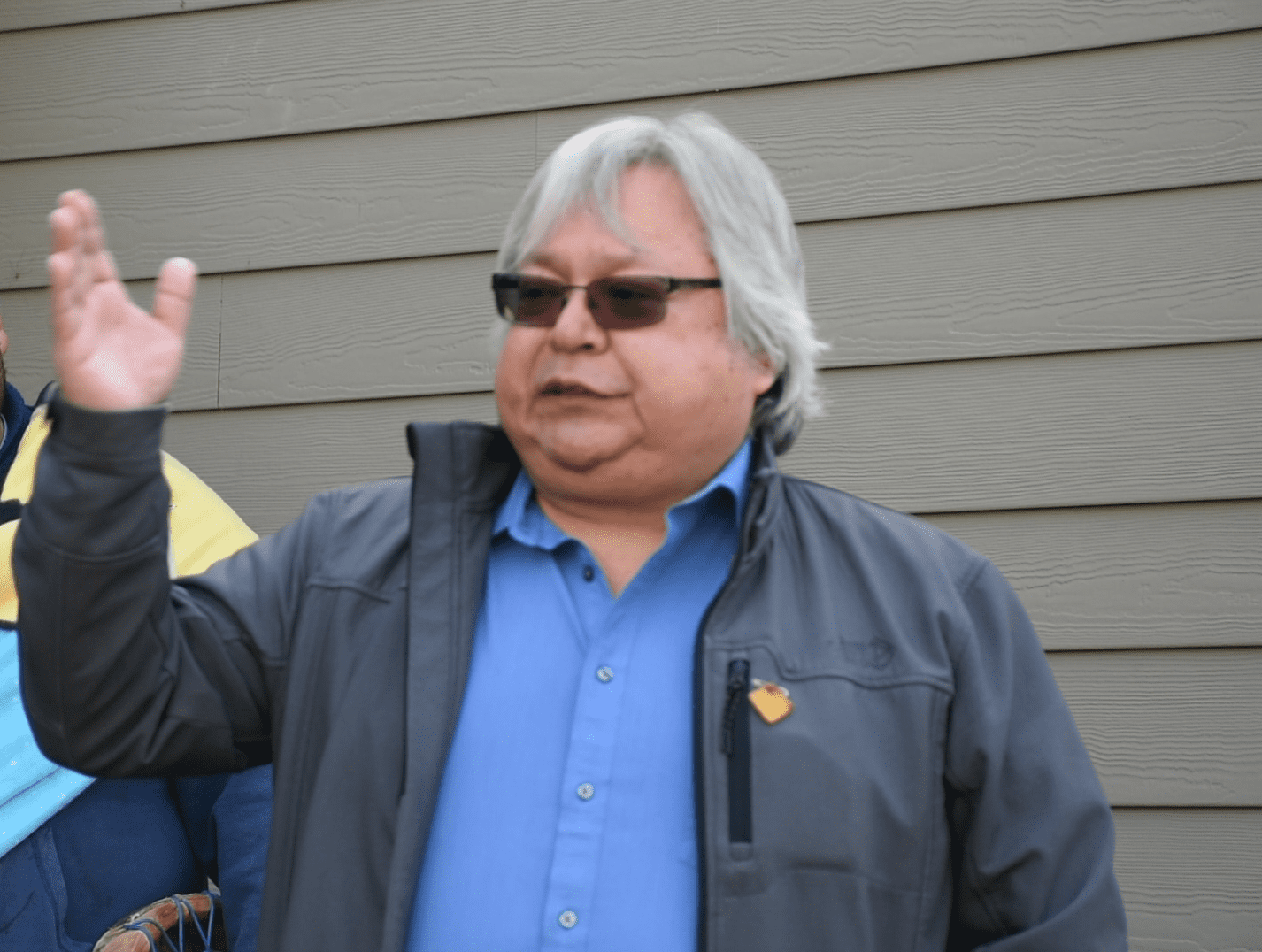
Chief Dalton Silver comes from the Malloway/Silver family… His Mother is Marlene Malloway from the Ts’elxweyeqw Tribe in Chilliwack, and Father was Dave Silver from Sumas First Nation. His grandparents were Ambrose and Nellie-Jane (Jean) Silver from Sumas and Ritchie and Edna Malloway from Chilliwack.
Chief Dalton has been in leadership for 29 years and is in his sixth term as Chief of Sumas First Nation. He didn’t come by this role in leadership by chance. There have been Chiefs and warriors in his family for many years. At 11 years of age, Dalton has fond memories of going to his first Chiefs meeting with his Grandfather Ritchie Malloway when his grandfather was the Chief for the Fraser East Regional Chiefs.
As a leader Chief Dalton likes meeting people, watching improvements and accomplishments happen and the challenge to make things better overall. He loves to see the children in his community playing, smiling, and kicking the soccer ball around. He really takes pride in overcoming challenges to work towards continuous progress to make things better for the people.
Chief Dalton shared some of the history of his community. He said that the Sema:th people have been here since time immemorial, as the history goes beyond the flood story which had taken place well over 10,000 years ago. Historically Sema:th have been strong warriors and regarded as the Wolf people. Chief Dalton’s grandfather used to say in the Coast Salish Territory Sema:th was the central location where the people used to gather.
The people gathered in the summertime as we had Sema:th Lake that was like “a shopping center” that once offered every species of fish right there at the front of our village and in the winter time people gathered there from all parts of the Coast Salish Nation for the winter ceremonies. Chief Dalton hopes sometime in the future that Sema:th can be reestablished as a central place amongst the Coast Salish.
Today Sumas First Nation has a membership of 340 people with under 200 living on reserve. People rave about the health building in the community. Wendy Ritchie helped design the boardroom that was built for a meeting room. It’s circular design in the shape of an old Pit House where people feel comfortable. There is also a woodlot on the mountain that Chief Dalton describes as a “sacred place for cultural use… a medicine place to go.”
Chief Dalton is “proud overall” being quite progressive and pushing Government to listen while we assert our inherent rights as First Nation people. He said they are against the trans mountain expansion project and he is proud our people asserting rights and title.
Overall Chief Dalton wants to encourage the Xyólheméylh staff to keep up the good work in child and family services. He said, “it’s important to actively communicate with our communities and maintain the dignity and strength of our people in the work you do.”
Chief Dalton comes from a large family and encourages everyone to stay safe and be careful. He said, “we have overcome smallpox, polio, flues that disseminated our people and we have maintained our identity as resilient people. Do what you can enjoy, please be careful and be safe.”
Meet a FVACFSS Board Member: Helen Joe - “Melileqthet”
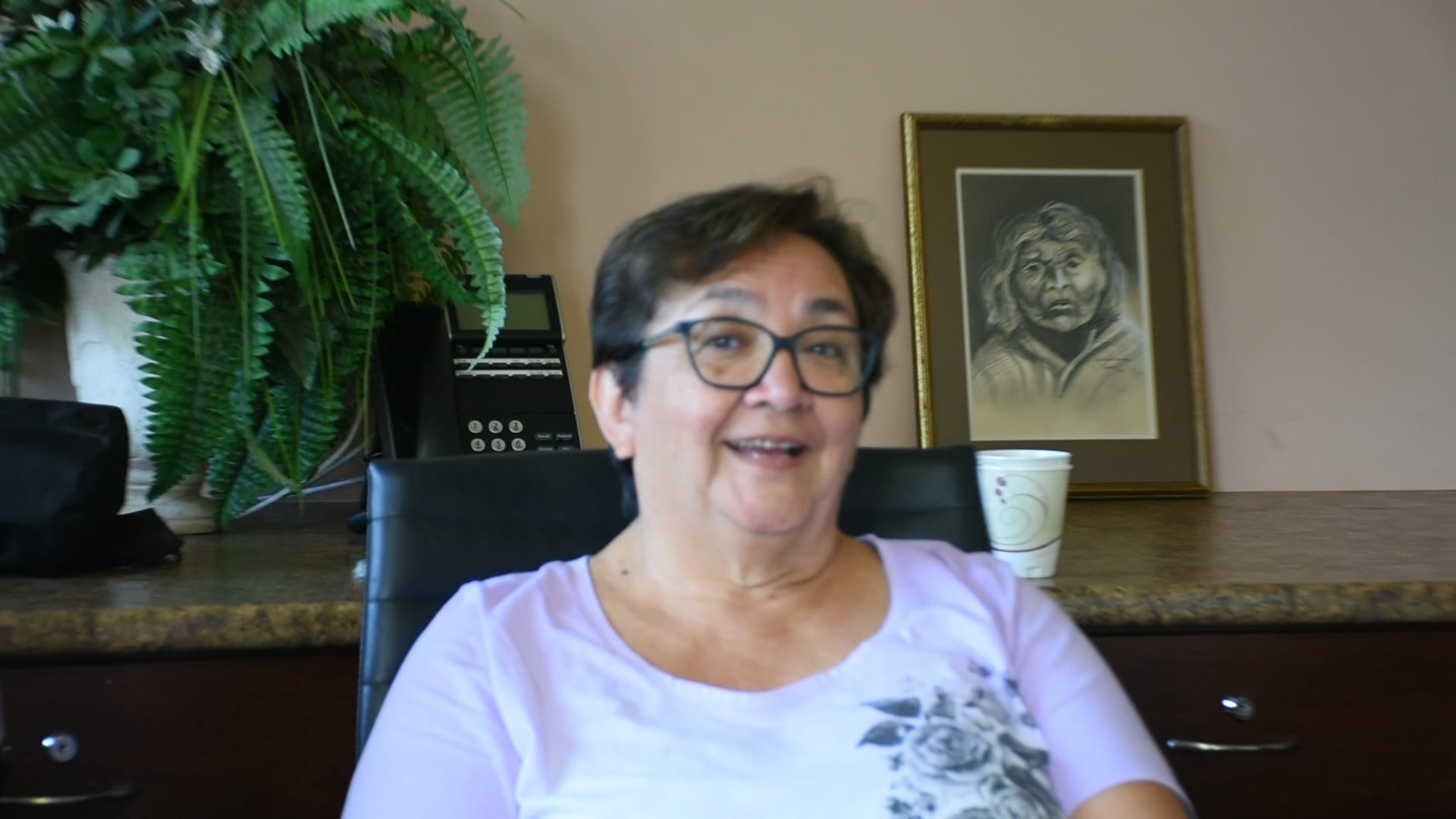
Throughout Helen Joe’s life, there is a running narrative of a passion for children, health, justice and culture.
Helen sits on the Xyólheméylh Board of Directors. She is from the Skagit First Nations in Washington and her traditional name is Melileqthet. Helen moved to Stó:lō Territory to marry her husband Herb Joe from Tzeachten First Nation, in 1967. They are still are together, have four children, 13 grandchildren, and nine great grandchildren.
Helen’s two-year term on the Board was set to expire this month, but because of the pandemic and the cancelation of our AGM, Helen’s term was extended until June, 2021. She has also been on the Board of First Nations Health Authority for six years. She says children and health go hand in hand.
Helen studied linguistics and Halq’emeylem, was a member of the provincial parole board for six years and has worked extensively in the corrections system for nine years. She was also employed by Xyólheméylh for 11 years.
“When I went to work in corrections for nine years I found a good majority of the guys I worked with had been children that were in care, either living in the big city, living away from their communities, they didn’t know who their families were and didn’t have any place to belong so that’s when a number of them joined gangs,” says Helen.” I’ve always had an interest in the wellbeing of children, they need to feel like they belong, and they need to be loved.”
She is currently a project coordinator with the Sesiyomelh or Matriarch Project which is working on C92-The Act respecting First Nation, Inuit and Métis children, youth and families. The project will inform the government moving forward with the legislation to see First Nations have more autonomy over the child welfare system.
“The communities need to be involved in the decisions when it comes to their children. Historically the grandmothers and grandfathers guided the families. A lot of our children were brought into foster care, and the families didn’t have any say once the children were removed. This left a big gap in our family systems. We as matriarchs need to have a say in what happens to children, and the children need to know their culture and families,” says Helen.
Helen is concerned about the impact of COVID-19 on Indigenous communities, particularly the loss of loved ones and traditional death protocols. She is also concerned about mental health, the isolation and abuse of Elders, and increase in domestic violence.
“People are hurting because of what we need to do to be safe … Our people are not used to being isolated, we were always inclusive,” says Helen. She references gatherings, ceremonies and supporting people who are dying. “There is a lot of upset in our communities, we have to try and help people.”
When her term is up next summer Helen still plans on being involved with Xyólheméylh as an Elder advisor. Thank you Helen for all you do!
voices of our children & Youth
To celebrate National Indigenous Peoples’ Day this past June, we held a writing contest. We asked Indigenous children and youth in BC to express in writing what being Indigenous means to them. We received so many lovely and inspiring submissions and as an agency strive to empower our Indigenous children and Youth to share their voice all the time. We proudly share some more of the submissions:
"To me being Indigenous means beautiful regalia, art, language, dancing and singing, celebrations, ceremonies and potlaches. It’s important to keep the language going so I can learn more of it - I love hearing my language! It makes me feel at home - where I’m supposed to be - in my heart and soul."
- Nevaeh, 12
"Being Indigenous has helped me be a stronger kinder person. I'm proud to be Indigenous. I'm stronger and I am happier. Now I believe in myself. So when someone asks me what it means to be Indigenous, I say that it means that we are who we are meant to be, who we want to be, we can be whoever we believe we can be. We love, care, protect and cherish one another. We don't give up. We believe in ourselves and others. We believe in second chances and we don't give up on anyone."
- Tyra, 17
thank you to all our christmas hamper donors
Every Christmas we help to spread holiday joy by providing food hampers and toys/gifts to families and children/youth that receive services through our Agency. This year we are providing Christmas hampers to 40 families in the Fraser Valley as well as hampers to youth on agreements. Thank you to:
- Rupi Rajwan for raising $1,000
- The Shewan Foundation for their generous gift of $2,500
- Shelsey Pascuzzo and Dirty Girls Lawn Care for more than $3,000
- The Union of Canadian Corrections Officers, KWIKWEXWELHP Local, for $500
- Our staff, community partners and First Nations communities who donated!
